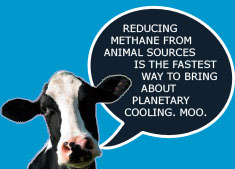Oceans & Fish In Peril
Many people mistakenly think that by shifting their diet from meat to fish, they will be averting the environmental or health destruction associated with eating meat. This is a dangerous misconception. If our planet is in peril, our oceans are in double jeopardy. By comparison, we have lost 25 percent of animal species since the 1970’s, but 91 percent of the ocean’s fish have been halved in number, and 45 percent have either nearly disappeared or become extinct.
With fish struggling for their very survival in the face of threats from pollution, overfishing, climate change and invasive species, the best way to provide them with a chance to survive these threats and recover is to leave them in to swim free in their natural habitat.
Global Fisheries Collapse By 2048An international team of ecologists and economists have concluded that the marine biodiversity loss, coupled with ongoing overfishing and climate change, are leading to a collapse of all species of wild marine animals within 50 years.
Dead Oceans, Dead PlanetWe need to bear in mind that while the ocean’s populations can exist without the population of land animals (including humans), the land ecosystem, including people and animals depend upon the existence of a healthy ocean.
The Oceans’ Benefits To The WorldAccounting for over 70 percent of the planet’s surface, oceans provide the following functions:
Climate Control – The oceans store the incredible solar-generated heat of the tropics and circulate the warmth to other regions, cooling the tropics and warming cooler regions, making all inhabitable.
Carbon Sequestration – 30 to 40 percent of the carbon emissions created by natural and human processes are absorbed by the oceans, although scientists estimate the oceans are reaching their limit.
Oxygen Generation – Although the ocean also plays a critical role in the creation of oxygen on the planet, pollution from industrial and agricultural runoff (much of it from growing feed crops for livestock), is created oxygen depleted dead zones where marine life cannot exist.
Oceanic Double JeopardyMore than 90 percent of the oceans fish have been lost since the 1950’s, with over fishing responsible for 55 percent of the loss. The main causes of the decrease in fish include destructive fishing practices and exploitation:
Pollution – over 80% of the pollution in the oceans comes from land sources, where runoff from agriculture is a significant source. The pollution has lead to 200 oxygen-depleted “dead zones” up from 150 in 2003.
Invasive Species – Invasive species growth has been correlated with increased pollution and warmer waters, allowing species once limited to warmer areas to migrate to new areas. Invasive species pose the threat of out-competing and dislodging native species.
Climate Change – the UN forecasts that warmer ocean temperatures are likely to kill 80% to 100% of global coral reefs by 2080, natural sea defenses and nurseries for fish.
The Ecological Menace of Farmed FishFisheries ecologist Dr. John Volpe from the University of Alberta points out that farmed fish are at risk of having higher concentrations of toxins than wild fish, because they are fed a high-fat concentrate of fish caught in other regions. Because toxins are stored in fat cells for fish and other species, farmed fish consume higher than average concentrations of dioxins, PCBs, mercury and other pollutants the smaller fish pick up from polluted oceans. Because it takes five pounds of fish to create one pound of farmed fish, fisheries in other regions of the world are being depleted to grow the farmed fish, putting further pressure on a collapse of global fish stocks. The fish are typically fed many antibiotics to stave off disease from being raised in such close quarters, but sometimes they escape, allowing diseases from the farmed fish to be passed onto local fish, endangering the local populations. Additionally, the excrement pens pose an environmental hazard to the local region as well.

Click here to view

Eco-Eating facts on meat diet vs. Plant-based diet (1.5 minutes)
THE GREEN PLANET AWARDS RAISE AWARENESS ABOUT THE CRITICAL SITUATION THE ENVIRONMENT IS CURRENTLY IN & HUMAN ACTIONS WHICH INFLUENCE CLIMATE CHANGE![]()
COOL LINKS
Wake Up, Freak Out
Take Aim At Climate Change
Save The Human Music Vid
GENERAL LINKS
Price of Meat
Meat The Facts
Veg Source
Earth Save
Monga Bay
NASA
Eco-eating
SEI
ENFO
Cultivate
Friends of the Earth
United Nations FAO
Hunger Site
One World
Diet, Energy, & Global Warming
HEALTH LINKS
Nutrition Ecology International Center NEIC
The Cancer Project
PCRM
Nutrition MD
Human Herbivore Physiology
ENVIRONMENTAL LINKS
Answering the sceptics
Tree Hugger
Sea Shepard Conservation Society
Permaworld
Grist
VNV.ORG.AU
UN News Centre
Science Daily
Science Daily: Poison ice
Time: Health and Science
Common Dreams
Global Stewards
The Independent
National Geographic
DotEnvironment
Green Peace Reports
IVU
![]()
Vegan: The New Ethics of Eating by Erik Marcus
The Food Revolution by John Robbins
Healthy at 100 by John Robbins
A Delicate Balance (film)
Meat The Truth (film)
The 11th Hour - Narrated by Leonardo DiCaprio (film)
![]()
